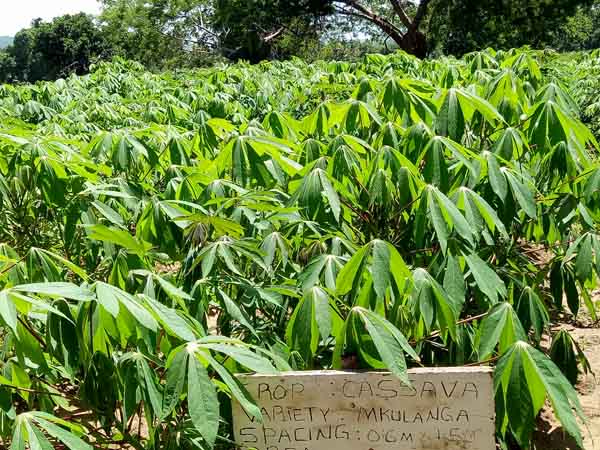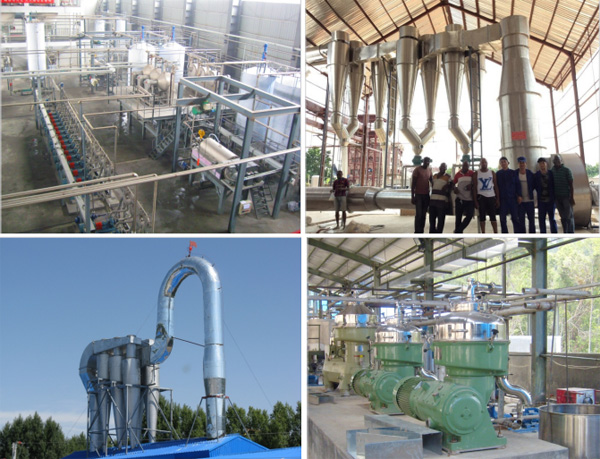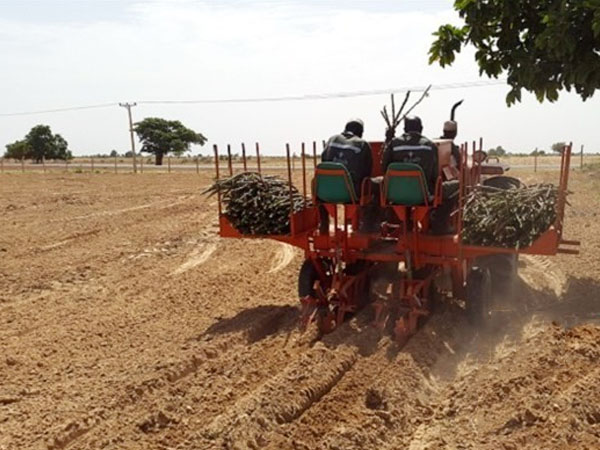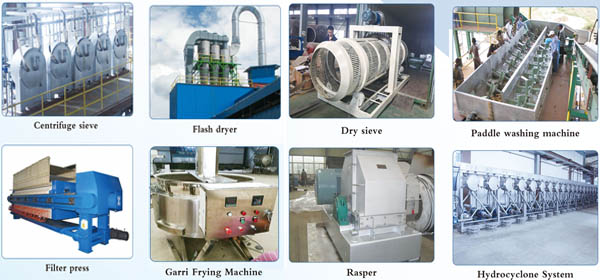Problems of cassava production and processing in Nigeria
Industry News / Chat online / Technical support / December 20, 2018
Cassava is the most important root crop in Nigeria. In Nigeria, only cassava accounts for about 45% of Nigeria's agricultural GDP, mainly for food or household use, and its industrial processing and utilization is very limited. At present, the annual demand for cassava starch in Nigeria is estimated to be 350,000 tons, while the national supply is estimated to be about 300,000 tons, which still cannot meet domestic demand. If the cassava processing industry is further developed, the cassava industry may be more likely to contribute to the development of industrialization in Nigeria than any other industry. It is in recognition of this fact that the Nigerian government has prioritized the cultivation, processing and export of cassava in the past few years. At present, the problems of cassava production and processing in Nigerian are as follows:
 Cassava planation in Nigeria
Cassava planation in Nigeria
First, the cassava variety needs to be improved, and the current commercial development value of the Nigeria variety is low. The content of cassava starch planted in Nigeria is generally low. If it can be improved by varieties, reach the level of 38-40% of cassava starch in India and Malaysia, then cassava commercial development value can be improved.
Second, the cost of agricultural materials is high, affecting the level of yield. In the growing season of cassava, the control of weeds is not in place, and it is basically in a state of natural growth. The cost of agricultural materials such as pesticides is too high, which affects the enthusiasm of farmers for large-scale production. At present, the output of cassava per hectare in Nigeria is 10.6~15 tons, if want to further increases the productivity, it requires the government to provide certain subsidies.
Third, the production of cassava in Nigeria lacks the correct value orientation. The positioning of the cassava processing enterprises is still oriented to local basic consumption and as a staple food substitute. There is no commercial development and export-oriented production target, and no refined processing technology and financial support are carried out. Cassava can be processed into industrial starch, alcohol, syrup, sweeteners, animal feed, and cassava beer. The above-mentioned by-product development has success stories in many countries in the world. At present, the international market price of industrial starch is 200,000 naira per ton, if Nigeria can pay more attentation to cassava processing industry technical improvement and machines input, cassava commerical value can be increased large.
 Cassava starch processing plant
Cassava starch processing plant
Fourth, the lack of basic storage and processing facilities, the post-natal loss rate is too high. Although the workload of cassava production management is much smaller than that of other food crops, due to the lack of warehousing and processing facilities, the post-harvest loss rate is extremely high, and the transportation cost caused by various factors is high. So it takes time to construct the cassava industry value chain in Nigeria.
The main uses of cassava are in food, feed and industrial development. Cassava root is one of the main starch raw materials in the industry. At the same time, cassava is also an energy plant with great development potential and is one of the important pillars of the development of biomass energy industry. With the deepening of various deep processing technologies, cassava has gradually become the world's recognized high-value economic crops and important industrial raw materials. The annual global cassava trade volume reaches 20 billion US dollars.
In terms of cassava production, although the total output of cassava in Nigeria ranks first in the world, the yield per hectare is very low. Africa is the world's largest cassava producing area, accounting for nearly 55% of the world's cassava production. However, Africa's unit cassava production is only 10 tons per hectare, and low productivity is the result of limited market opportunities due to mechanization and low utilization of production or processing tools. Statistics show that African farmers need 10 days to remove or harvest their fields, while Indian farmers only need 6 hours.
 Plant cassava
Plant cassava
In the production and processing of cassava, African cassava products have always been relatively less competitive in the world market, because the production and processing of cassava in Africa is mainly for survival, not for commercial use. Currently, major cassava producing countries in Africa have recognized the need to develop technologies to grow, harvest and process cassava to increase productivity and reduce post-harvest losses.
Nigeria's cassava production ranks first in the world, and It is also the country with the highest development of African cassava resources. Now, Nigeria's cassava has changed from a low-yielding reserve crop to a high-yield economic crop. However, the development of the cassava processing industry in Nigeria has not kept up with the increase in production. At present, the family-style hand workshop is still the main form of the cassava root processing industry, and there are few large and medium-sized processing equipment and factories in Nigeria. Nigerian cassava products are far from meeting the needs of domestic and international markets.
 Main cassava processing machines from Doing Company
Main cassava processing machines from Doing Company
In some parts of Africa, cassava accounts for more than 50% of people's daily diet. Among all African countries, Nigeria's cassava production ranks first, accounting for about one-fifth of the world's cassava production. It produces about 45 million tons of cassava annually. Cassava is easy to grow in arid areas where rainfall is very limited. Nigerian farmers choose cassava for their stubborn viability in drought, but 90% of cassava is currently consumed in Nigeria. Although high-quality cassava has prompted them to establish some cassava starch industry, the high-quality cassava starch processing industry in Nigeria is still dominated by small scale, the quality of finished starch is unstable, and the utilization rate of raw materials is low.
Traditionally, cassava is one of the main foods of Nigerian farmers, and it is also widely consumed in other African countries. Cassava roots are used to make different types of local foods such as starch, ethanol, tapioca and garri. Nigerians say that if they commercialize cassava, cassava may even replace the status of oil, which will boost their economy and create more jobs.
contact us
- Do you want to buy machine?
- Yes, I want to buy machine
- No, I want to learn more in advance.
- What is your raw material?
- Cassava
- Potato
- Sweet potato
- Others
- 2. What is the final product you want to produce?
- Garri
- Cassava flour
- Cassava starch
- Cassava chips
- Attiekie
- Bammy
- Others
- 3.What is your capacity plan?
- Small scale garri machine
- 1ton per day
- 2tons per day
- 3tons per day
- 10tons per day
- 20tons per day
- Others
- 3.What is your capacity plan?
- Small scale
- 5tons per day
- 10tons per day
- 20tons per day
- 50tons per day
- 100tons per day
- Others
- 3.What is your capacity plan?
- Small scale
- 5tons per day
- 10tons per day
- 20tons per day
- 50tons per day
- 100tons per day
- 200tons per day
- 300tons per day
- Others
- 3.What is your capacity plan?
- Small scale
- Middle type
- Large scale
- What is your capacity plan?
- Small scale
- 5tons per day
- 10tons per day
- 20tons per day
- 50tons per day
- 100tons per day
- 200tons per day
- 300tons per day
- Others

 Call us
Call us Chat online
Chat online
